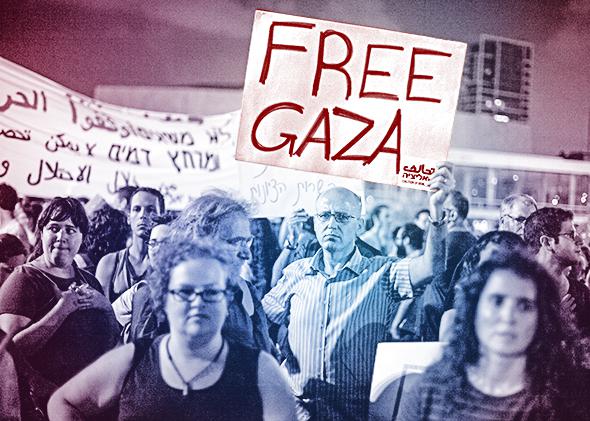Emily,
When I move back to Israel, to live and raise my children there, I hope we will get to wave to Palestinian kids out on a hike and to say hello. Ethan Bronner wrote an interesting essay last month about this growing physical separation between Israelis and Palestinians, who “once knew each other intimately and are now virtual strangers.” He writes:
Israelis — especially in the heartland around Tel Aviv, where two-thirds of the country lives — can now go weeks without laying eyes on a Palestinian or ever having to think about one. In Gaza, Israelis do not exist except in a kind of collective nightmare. In the West Bank, the Israelis are mostly settlers and soldiers. Apart from a few pockets of industry and shopping where Palestinians are employed, interaction is highly limited.
This feels relevant to our debate because this forced separation is not good for peace prospects. (As Bronner also adds: “The relationship between Prime Minister Benjamin Netanyahu and Mr. Abbas is one of mutual loathing.”) If Israelis can ignore Palestinians except when they are lobbing rockets across the border, so can Netanyahu. And this is exactly what writers like Jonathan Chait, Roger Cohen, and Ezra Klein do not want to happen.
To go back to Rosner’s article, I’d like to unpack his family metaphor a little, because that’s where he lost me. Not because I don’t believe it applies on a certain theoretical level, but because the binary he presents is completely illogical. He writes: “If all Jews are a family, it would be natural for Israelis to expect the unconditional love of their non-Israeli Jewish kin. If Jews aren’t a family, and their support can be withdrawn, then Israelis have no reason to pay special attention to the complaints of non-Israeli Jews.”
It strikes me that Rosner does think of all Jews as a family, or else he wouldn’t have penned this column blaming American Jews for withdrawing the unconditionality of their support. And yet he ends the column by writing that if Israel loses the support of some American Jews, then “so be it.” I would turn the question back to him: Which one is it? If all Jews are a family, then you should make room for some relatives’ dissenting views and not threaten to kick them out. And if all Jews aren’t a family, and they can withdraw their support or qualify it, then why are you writing this?
Engaged criticism that takes to task several of Netanyahu’s decisions—such as his decision to release Palestinian prisoners over freezing settlement construction, or his decision to isolate and weaken the moderate Mahmoud Abbas—is not only legitimate but crucial. If our shared goal, as you wrote to me earlier, is to move away from a moral and demographic calamity, then one hopes that this kind of criticism would only strengthen the Zionist vision.
Speaking of Zionism, I think Rosner unfairly characterizes the American journalists he quotes as being made to “question their Zionism.” Is Zionism really what he means? I have no doubt that if you ask Klein, Chait, or Cohen whether they believe in the creation of the Jewish state and support its continued existence, they would answer with an unequivocal yes. I suspect that by calling their Zionism into question, what Rosner really takes issue with is their unwillingness to act as mindless cheerleaders of Israel’s policies. Perhaps being such a cheerleader is his definition of Zionism, but if so it’s a surprisingly narrow one. What we need is not a discourse of apologetics but of substance and values.
This is true outside of Israel but also within it. While Rosner framed his argument to be against non-Israeli voices of liberal opposition, a similar silencing of liberal opposition is taking place inside Israel. Author Etgar Keret recently called this phenomenon “Israel’s other war.” Here’s how he describes it:
In 2014, in Israel, the definition of legitimate discourse has changed entirely. Discussion is divided between those who are ‘pro-I.D.F.’ and those who are against it. Right-wing thugs chanting ‘death to Arabs’ and ‘death to leftists’ on the streets of Jerusalem or Foreign Minister Avigdor Lieberman’s call to boycott Arab-Israeli businesses protesting the operation in Gaza are considered patriotic, while demands to stop the operation or mere expressions of empathy about the deaths of women and children in Gaza are perceived as a betrayal against flag and country. We are faced with the false, anti-democratic equation that argues that aggression, racism, and lack of empathy mean love of the homeland, while any other opinion—especially one that does not encourage the use of power and the loss of soldiers’ lives—is nothing less than an attempt to destroy Israel as we know it.
This “anti-democratic equation” should be worrying to anyone who cares deeply about Israel and its future. Wherever we raise our children, outside of Israel or in it, one hopes we can teach them to voice their opinions and—as generations have done before them—argue.
